36 Arguments for the Existence of God - [3]
Nobody out there is keeping the books, of course, but maybe he’s earned the right to such happiness? Maybe the years he’d given up to mourning Pascale have paid out a retributive dividend? No. He knows better than to believe in such hocus-pocus, nothing else but more spilled religion.
Pascale’s absurd scarf mummying him up to his rimless glasses, he hadn’t thought much about where he would go at this hour and had headed straight for Harvard Square and then down to the river, and then up onto Weeks Bridge, dead center, which seems to be the spot that he’d been seeking.
The night is so cold that everything seems to have been stripped bare of superfluous existence, reduced to the purity of abstraction. Cass has the distinct impression that he can see better in the sharpened air, that the cold is counteracting the nearsightedness that has had him wearing glasses since he was twelve. He takes them off and, of course, can’t see a thing, can barely see past the nimbus phantom of his own breath.
But then he stares harder and it seems that he can see better, that the world has slid into sharper focus. It’s only now, with his glasses off, that he catches sight of the spectacle that the extreme cold has created in the river below, frozen solid except where it’s forced through the three arches of the bridge’s substructure, creating an effect that could reasonably be called sublime, and in the Kantian sense: not cozily beautiful, but touched by a metaphysical chill. The quickened water has sculpted three immense and perfect arches into the solid ice, soaring fifty or sixty feet to their apices, sublime almost as if by design. The surface of the water in the carved-out breaches is polished to obsidian, lustered to transparency against the white-blue gleam of the frozen encasement, and, perspective askew, the whole of it looks like a cathedral rising endlessly, the arches becoming windows opening out onto vistas of black.
Standing dead center on Weeks Bridge, in the dead of winter in the dead of night, staring down at the sublime formation, Cass is contemplating the strange thing that his life has become.
To him. His life has become strange to him. He feels as if he’s wearing somebody else’s coat, grabbed in a hurry from the bed in the spare bedroom after a boozy party. He’s walking around in someone else’s bespoke cashmere while that guy’s got Cass’s hooded parka, and only Cass seems to have noticed the switch.
What has happened is that Cass Seltzer has become an intellectual celebrity. He’s become famous for his abstract ideas. And not just any old abstract ideas, but atheist abstract ideas, which makes him, according to some of the latest polls, a spokesperson for the most distrusted minority in America, the one that most Americans are least willing to allow their children to marry.
This is a fact. Studies have found that a large proportion of Americans rate atheists below Muslims, recent immigrants, gays, and communists, in “sharing their vision of American society.” Atheists, the researchers reported, seem to be playing the pariah role once assigned to Catholics, Jews, and communists, seen as harboring alien and subversive values, or, more likely, as having no inner values at all, and therefore likely to be criminals, rapists, and wild-eyed drug addicts.
“As if,” as Cass often finds himself saying into microphones, “the only reason to live morally is fear of getting caught and being spanked by the heavenly father.”
Cass Seltzer has become the unlikely poster boy for this misunderstood group. His is a good face for counteracting the fallacy of equating godlessness with vice. Handsome, but not in a way to make the squeamish consider indeterminate sexual orientation, Cass has a fundamental niceness written all over him. He’s got a strong jaw, a high ovoid forehead from which his floppy auburn hair is only just slightly receding, and the sweetest, most earnest smile this side of Oral Roberts University. Is this a man who could possibly go out and commit murder and mayhem, rape our virgin daughters, and shoot controlled substances into his veins?
His life has been largely commandeered not only by Sy Auerbach, the literary agent-cum-cultural impresario who represents him, but by a speakers’ agent, publicists, media escorts, and other attendants who two years ago were as alien to him as atheists remain (despite Cass’s best efforts) to the majority of Americans.
No wonder, then, that Cass undergoes moments when he feels he’s lost the feel of his own life, its narrative continuity, the very essence of which was insignificance and an obscure yearning in many directions. The loss hardly matters, since he likes this new narrative so much better, likes it too much to own it fully as his own.
For the most part, fame is agreeable to Cass. For one thing, people treat him more nicely. It’s a revelation to learn what a nice bunch of upright mammals we’re capable of being. Everybody happily, gratefully, applies the Golden Rule when it comes to interacting with the famous. Thou must treat the famous as thou wouldst wish to be treated thyself. Easy! If only everybody could be famous, we would all be effortlessly altruistic.

Как найти свою Шамбалу?.. Эта книга – роман-размышление о смысле жизни и пособие для тех, кто хочет обрести внутри себя мир добра и любви. В историю швейцарского бизнесмена Штефана, приехавшего в Россию, гармонично вплетается повествование о деде Штефана, Георге, который в свое время покинул Германию и нашел новую родину на Алтае. В жизни героев романа происходят пугающие события, которые в то же время вынуждают их посмотреть на окружающий мир по-новому и переосмыслить библейскую мудрость-притчу о «тесных и широких вратах».
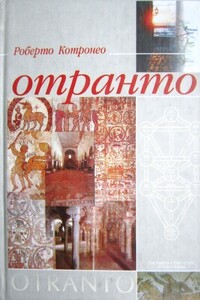
«Отранто» — второй роман итальянского писателя Роберто Котронео, с которым мы знакомим российского читателя. «Отранто» — книга о снах и о свершении предначертаний. Ее главный герой — свет. Это свет северных и южных краев, светотень Рембрандта и тени от замка и стен средневекового города. Голландская художница приезжает в Отранто, самый восточный город Италии, чтобы принять участие в реставрации грандиозной напольной мозаики кафедрального собора. Постепенно она начинает понимать, что ее появление здесь предопределено таинственной историей, нити которой тянутся из глубины веков, образуя неожиданные и загадочные переплетения. Смысл этих переплетений проясняется только к концу повествования об истине и случайности, о святости и неизбежности.
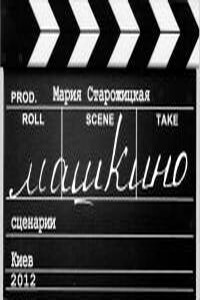
Давным-давно, в десятом выпускном классе СШ № 3 города Полтавы, сложилось у Маши Старожицкой такое стихотворение: «А если встречи, споры, ссоры, Короче, все предрешено, И мы — случайные актеры Еще неснятого кино, Где на экране наши судьбы, Уже сплетенные в века. Эй, режиссер! Не надо дублей — Я буду без черновика...». Девочка, собравшаяся в родную столицу на факультет журналистики КГУ, действительно переживала, точно ли выбрала профессию. Но тогда показались Машке эти строки как бы чужими: говорить о волнениях момента составления жизненного сценария следовало бы какими-то другими, не «киношными» словами, лексикой небожителей.
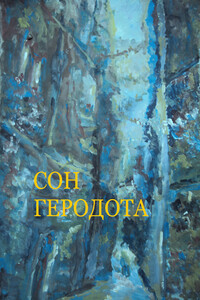
Действие в произведении происходит на берегу Черного моря в античном городе Фазиси, куда приезжает путешественник и будущий историк Геродот и где с ним происходят дивные истории. Прежде всего он обнаруживает, что попал в город, где странным образом исчезло время и где бок-о-бок живут люди разных поколений и даже эпох: аргонавт Язон и французский император Наполеон, Сизиф и римский поэт Овидий. В этом мире все, как обычно, кроме того, что отсутствует само время. В городе он знакомится с рукописями местного рассказчика Диомеда, в которых обнаруживает не менее дивные истории.
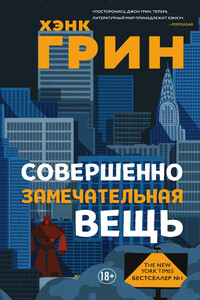
Эйприл Мэй подрабатывает дизайнером, чтобы оплатить учебу в художественной школе Нью-Йорка. Однажды ночью, возвращаясь домой, она натыкается на огромную странную статую, похожую на робота в самурайских доспехах. Раньше ее здесь не было, и Эйприл решает разместить в сети видеоролик со статуей, которую в шутку назвала Карлом. А уже на следующий день девушка оказывается в центре внимания: миллионы просмотров, лайков и сообщений в социальных сетях. В одночасье Эйприл становится популярной и богатой, теперь ей не надо сводить концы с концами.
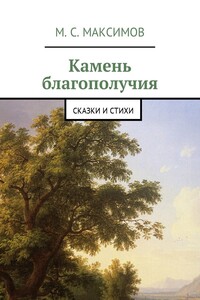
Сказки, сказки, в них и радость, и добро, которое побеждает зло, и вера в светлое завтра, которое наступит, если в него очень сильно верить. Добрая сказка, как лучик солнца, освещает нам мир своим неповторимым светом. Откройте окно, впустите его в свой дом.